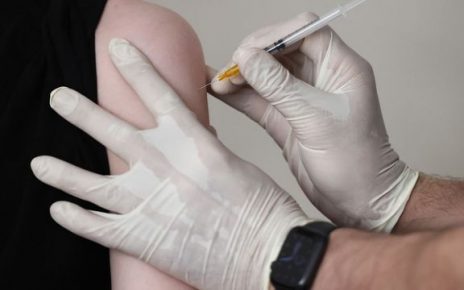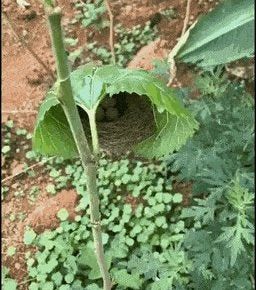An arable and dairy farmer sows maize in Normandy (France). ED ALCOCK / M.Y.O.P. POUR « LE MONDE »
« We used to spray the sheep pens with a backpack, without any kind of protection. I never used gloves, masks, or anything. I was only careful not to touch the product. I mixed it with a wooden stick and that was it, » recalls Luis Grasa. This 70-year-old Spanish man worked all his life as a shepherd and farmer in Cerésola, in the province of Huesca, Spain – the number one country in Europe for the use of pesticides. Eight years ago, he was diagnosed with Parkinson’s disease, a progressive nervous system disorder that leads to shaking and difficulty with movement.
« I felt my movements slowing down quickly. My wife and sister noticed it too, » he says. His wife, Maria del Carmen, can still recall the short-term effects after spraying in the sheepfold used by Luis and his father when they could stay sick in bed for three days after disinfection.
Luis Grasa’s testimony is by definition anecdotal. The same could be said about Angel Molina, a retired farmer and Parkinson’s patient in the municipality of Soria, who remembers getting headaches when applying pesticides in the spring.
Both are probably ill from pesticides. But in Spain, like everywhere else in Europe, no proper monitoring of farmworkers was ever put in place before the 2000s. « Official data on the frequency of occupational accidents and diseases are inaccurate and clearly underestimated in agriculture, » states a 2008 report from the Spanish National Institute of Occupational Safety and Health.
« It is very difficult to particularise in each farmer and demonstrate the causal association between continued exposure to pesticides and the development of Parkinson’s disease, but the risks exist and have been demonstrated, » explains Fernando García López, a scientist at the National Epidemiology Centre. Deaths from Parkinson’s disease have increased from 1 716 deaths in 2000 to 4 832 in 2020, according to the National Institute of Statistics, in a response to our cross-border investigation – an increase of 182 % in a 20 year period. The use of pesticides is one of the several hypotheses to explain it, he says.
This is not just an issue in Spain; our investigation shows that the lack of data across Europe had led to the harmful effects of pesticides on human health being obscured.
No data, no problem?
A study documenting an association between exposure to herbicides (pesticides that kill weeds) and Parkinson’s disease was published as early as 1985. Parkinson’s disease can be caused by multiple factors, but exposure to pesticides has now emerged as a possible factor in scientific literature. This is one of the reasons why, for the purposes of this cross-border investigation, we have taken Parkinson’s disease as a reference occupational disease for farmworkers.
The knowledge has now reached a rare stage where some specific pesticides have been identified to cause the disease: paraquat, rotenone, and also dieldrin, an organochlorine insecticide pointed out in biologist Rachel Carson’s seminal book on pesticides, Silent Spring, as early as 1962. However, this knowledge has so far only reached very limited circles.
As of today, only two EU countries – France and Italy – officially consider Parkinson’s disease as a possible direct consequence of working in the field and recognize them officially as occupational diseases.
In Italy, only 10 out of 20 farmworkers who have requested it, have received compensation for being ill with Parkinson’s between 2016 and 2020 out of a total of around 19,000 registered cases of occupational diseases.
Even in France, the first-ever European country to recognize that Parkinson’s disease could be caused by pesticides exposure (in 2012), the situation is not much better: only 278 patients have since obtained recognition, out of a total agricultural population of 1.2 million. France has since recognized that pesticide exposure can also cause two other chronic diseases: hematological malignancies and prostate cancer.
Most other EU countries don’t even keep count. So, no data, no problem?
Healthy Polish farmers and 61 German patients
There are huge discrepancies between European countries regarding their response to occupational diseases – for agricultural workers in particular – our cross-border investigation has exposed.
In Poland, 2.3 million people employed in agriculture lead a very healthy life – if official registers are to be trusted. Farmers and farmworkers are the largest groups to receive compensation for occupational disease. Infections from tick bites account for 80 percent of compensation paid out. The last time a work-related cancer was registered was in 2010. There has not been a single registered case of intoxication with chemical substances, even acute, over the last decade. Farmworkers are denied a permanent monthly pension if the authorities can show they did not use personal protective equipment.
A farmer sows maize seeds coated with fungicides prothioconazole and métalaxyl in his field in Normandy (France). ED ALCOCK / M.Y.O.P. POUR « LE MONDE »
In Germany, confidential government documents obtained by this investigation show that the Medical Advisory Board of Experts for Occupational Diseases, which depends on the German Federal Ministry of Labour, has been discussing whether Parkinson’s disease caused by pesticides should be on the official list of occupational diseases… for more than twelve years. As long as it isn’t on the list, affected farmworkers cannot obtain compensation.
So some go to court. A farmer in the mainly agricultural German region of Lower Saxony, Jochen Bosse, developed Parkinson’s disease when he was 56 years old. He has decided to take legal action to get his illness recognized as an occupational disease. He said he always wore gloves and safety glasses during the preparation phase, but they did little to combat the dusty air. « We should have been better informed early on that gloves alone were not enough when products were being mixed or run out. » He also recalls being exposed in his tractor: « When the wind blew, you could tell you were getting spray in your face. »
Since 2010, 61 patients with suspected occupational Parkinson’s disease due to pesticides have registered with the German responsible employers’ liability insurance association SVLFG. None of these claims has been recognized to date.
In Denmark, 3F, the country’s largest trade union, with a sector for farmworkers and others in the farming, gardening, and forestry sector, has never heard of injuries and illnesses related to the use of pesticides.
In Sweden, close to 35,000 people have received compensation for all kinds of work-related injuries and diseases in 2020, but there is no official list of recognized diseases; claims are investigated on a case-by-case basis. The database of Arbetsmiljöverket, the Work Environment Authority, shows there have been only three reported cases of compensation for illnesses caused by pesticides in the past five years.
In the Netherlands, the Dutch Parkinson’s Association has opened a hotline in 2019 for patients who have worked with pesticides. They have received more than 130 reports since starting to take calls.
France is the only country in Europe with an organization for victims of pesticides, which was created in 2011. Between 2012 and 2020, Phyto-Victimes has received calls for help from over 540 farmworkers affected by disease they believe was caused by their exposure to pesticides – men born in the 1950s and 1960s mostly –, according to Claire Bourasseau, the association’s main advisor supporting victims.
For the first time, Bourasseau has agreed to disclose Phyto-Victimes’ figures to our investigation, which eerily match the main scientific studies’ outcomes: almost 25 % have Parkinson’s disease, 18 % suffer from nonhodgkin lymphoma, multiple myeloma, chronic lymphocytic leukemia, and other types of blood cancers. Prostate, bladder, and lung cancer, then multiple chemical sensitivity and neurodegenerative diseases make the rest. All patients were seeking assistance to deal with the nightmarish paperwork required to obtain recognition and compensation.
No possible comparison, and nobody in charge
While sophisticated marketing authorization procedures for pesticides were introduced at the beginning of the 1990s to meet the needs of the EU single market, there is still no common scheme for workers to get their illnesses caused by pesticides exposure recognized as occupational diseases. Since workers’ health is not in the European Commission’s competence, there is no harmonized EU binding legislation on this topic.
Eurostat, the EU’s Office of Statistics, has created an experimental database on occupational disease. But it’s incomplete and mostly shows how difficult it is to compare the situation in member countries.
The European Agency for Safety and Health at work (EU-OSHA) « is not » either « in a position to provide information on national legislation or standards, » wrote a press officer. « At the moment, not even basic statistics are comparable across member countries. »
As an indicator of the EU’s political priorities, EU-OSHA, headquartered in Bilbao (Spain), is an information agency, not an enforcement agency, which employs just 65 staff – including 40 temporary agents. The European Food Safety Authority (EFSA), in comparison, has 450 employees. The responsibility for farm workers’ exposure to pesticides has been de facto entrusted to this agency, as the official body in charge of the assessment of risks linked to pesticides.
In the EU, when the exposure of farmworkers exceeds a determined level called the « acceptable operator exposure level, » pesticide manufacturers can recommend the use of protection equipment on the label. The equipment is believed to guarantee a low exposure. Yet a group of French researchers has been blowing the whistle on the inefficacy of coveralls to protect from pesticides since 2007.
« When addressing workers, EFSA excludes some of the data that shows high levels of exposure to hazardous products, » says Catherine Laurent, Director of research at the French National Research Institute for Agriculture, Food and Environment (INRAE), who specializes in the use of scientific knowledge in public decision-making. « In this way, EFSA contributes to turning the focus away from potential victims. This is a problem. »
Like this farmer in Normandy (France), a majority of farm workers across Europe do not wear personal protective equipment when handling pesticides. ED ALCOCK / M.Y.O.P. POUR « LE MONDE »
« Recognition and compensation of occupational diseases is a national prerogative and there is no power at EU level on that issue, » notes Tony Musu, Senior Researcher at the European Trade Union Institute (ETUI) in Brussels. The only existing tool at the EU level is the « European schedule of occupational diseases. »
It is a list of illnesses Member States are recommended – no strings attached – to introduce into their national laws for compensation and preventive measures. Parkinson’s disease does not appear in it.
Asked about this in 2017, the then acting Commissioner for health and food safety, Vytenis Andriukaitist, argued that there was « no clear scientific evidence about [the] occupational origin of Parkinson’s disease. » The Commission’s position hasn’t changed since then, a spokesperson stated by email, in response to this investigation.
The last line of defense
The EU Commission nonetheless claims to have a « vision zero » approach to work-related deaths in the EU, Spokesperson Veerle Nuyts wrote in an email, referring to a « framework strategy for health and safety at work » adopted in June 2021. « As one of these actions, the Commission calls on the Member States to provide training to farmers (…) to increase their skills and awareness on the health and safety rules on farms, including safe use of chemical substances, in particular, plant protection products, » Veerle Nuyts added.
Should farmworkers be primarily responsible for their own safety? Catherine Laurent strongly disagrees. A 1989 EU Directive clearly states that the three priority steps to ensure « the safety and health of workers at work » are: « avoiding risks, » « evaluating the risks which cannot be avoided » and « combating the risks at source. » « Giving appropriate instructions to the workers » comes only as of the ninth possible measure, Laurent explains. In other words, personal protection equipment should always be the last line of defense according to the EU law itself.
Despite this, no pesticide commercial formulation has been denied access to the market based on the state-of-the-science on protection equipment, to our knowledge. For ergonomist, Alain Garrigou, one of the whistleblowers, the pesticide authorization system is a « form of externalization of the responsibility on the people who are its victims. »
The French researchers say that the situation has much improved: protective equipment is much more used than fifteen years ago, not only in France. However, « the system clearly remains the same. It perpetuates and legitimizes a framework in which it is still up to the end-users of the product to ensure their own protection, » regrets the sociologist Jean-Noël Jouzel, director of research at the French National Centre for Scientific Research CNRS, author of Pesticides: How to Ignore What We Know (Presses de Sciences Po, 2019. French edition).
For Jouzel, « occupational diseases are crimes without a perpetrator. » Paraphrasing the French philosopher Jean-Pierre Dupuy, Catherine Laurent has even more powerful words: « It’s a world inhabited by murderers deprived of wickedness and victims deprived of hatred. »
Other reporters contributed to the story.
Pesticides at work: a collaborative investigation
The Cross-border investigation on “Pesticides at work” is coordinated by Investigative Reporting Denmark, edited by Le Monde and Katharine Quamby, and made in collaboration with journalists from Le Monde (France), Knack (Belgium), Tygodnik Powszechny (Poland), Ostro (Croatia and Slovenia), IRPI (Italy), De Groene Amsterdammer (The Netherlands), Ippen Investigativ (Germany), Marcos Garcia Rey (Spain) and The Midwest Center for Investigative Reporting (United States). The investigation is supported by Journalismfund.eu and IJ4EU.
L’article Pesticide victims left to fend for themselves est apparu en premier sur zimo news.




